Poona & Jaipur
1958/59 and 1961/62
Kapp’s project of social economics also theorized the social benefits of planning based on in-kind calculations, which can prevent or reduce social damages in the economic development process by properly accounting for them (cf. chapter 7 in Kapp 2015). This approach to development finds expression in Kapp’s two research visits to India as Fulbright research professor at the Gokhale Institute of Politics and Economics in Poona (1958-1959) and at the University Rajasthan, Jaipur (1961-1962). The results of his research during this time were published in the collection of articles “Hindu Culture, Economic Development and Economic Planning in India”. (Kapp 1963) In 1963 he obtained a position as Rockefeller visiting professor at the University of the Philippines, Diliman-Manila.
Kapp placed his development economics in the tradition of Friedrich List’s emphasis on the “Development State” (Kapp 1962). As a result, this research identifies real world barriers to societal and human development in retarding cultural institutions, and undemocratic planning by corrupt bureaucracies. It also showcases his continued critique of existing institutional arrangements in terms of their negative effects on natural resource utilization and ecology. Theorizing development as creating the institutional conditions for human flourishing in society through a substantive economic rationality based on in-kind calculations (Kapp 1963) leads Kapp to propose the notion of development as “open system”, in which social, economic, and ecological systems interact in circular cumulative causation (cf. chapter 8 in Kapp 2015).
References ︎︎︎

Notebooks from India

Notebooks from India
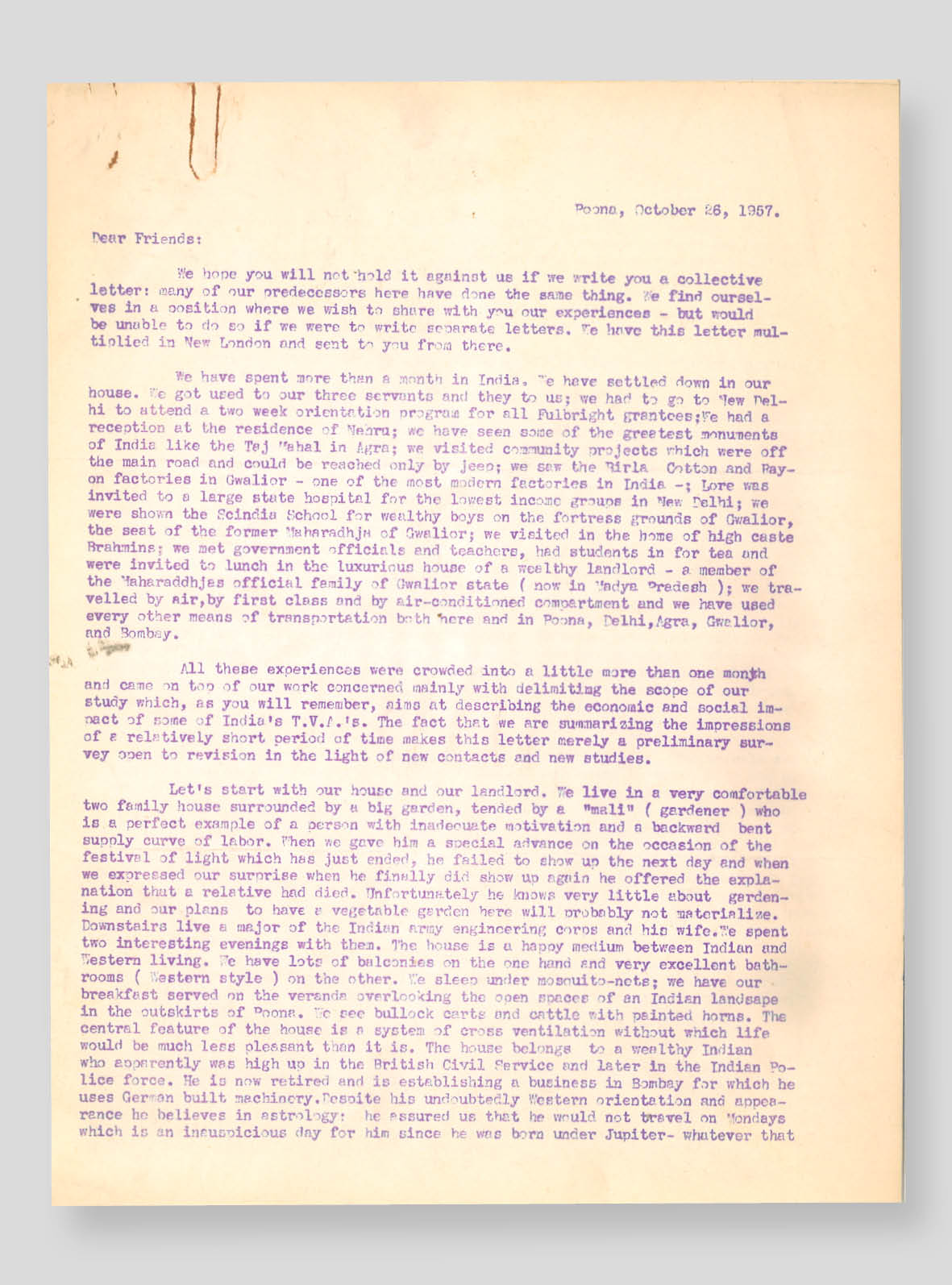
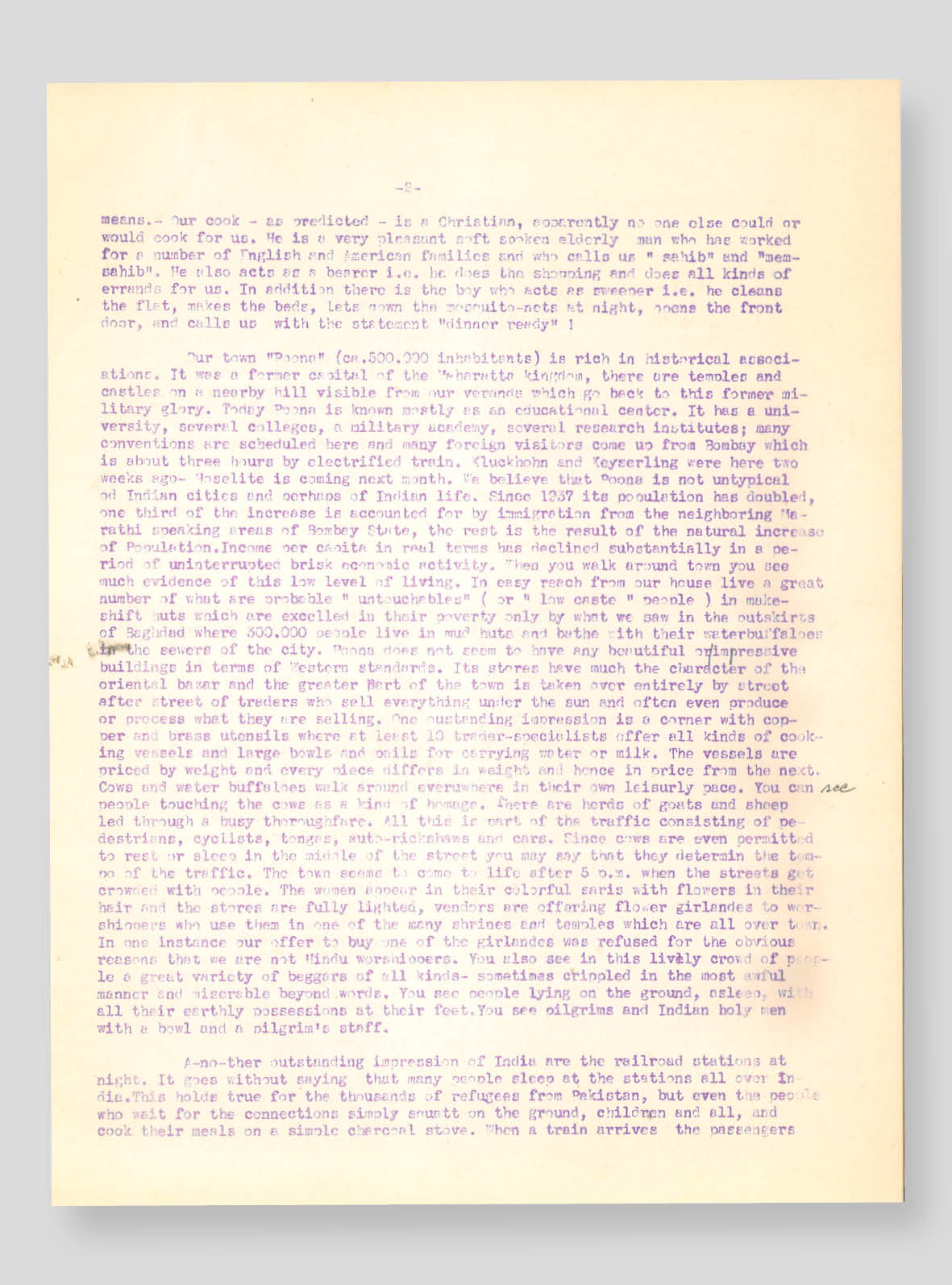
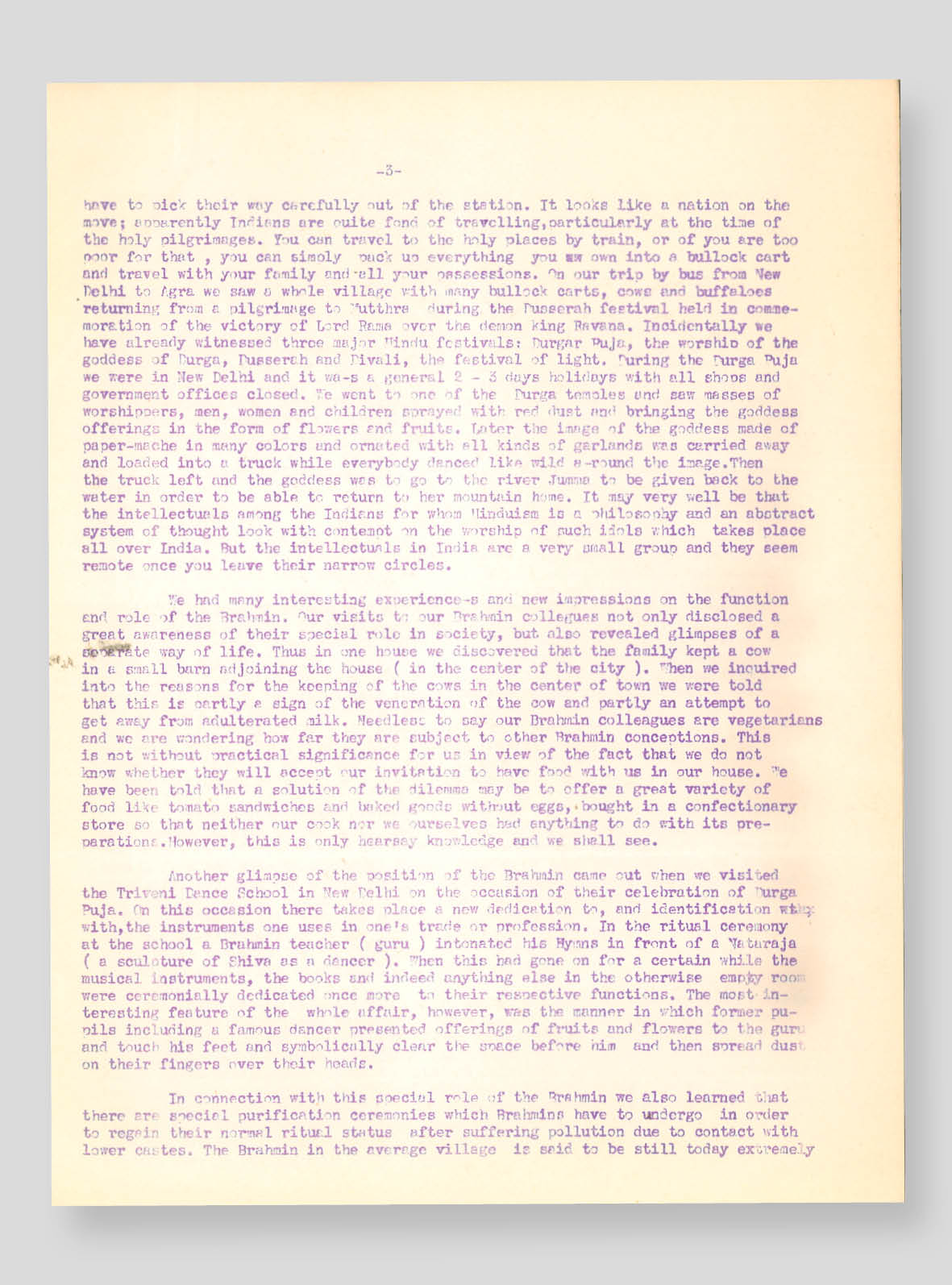
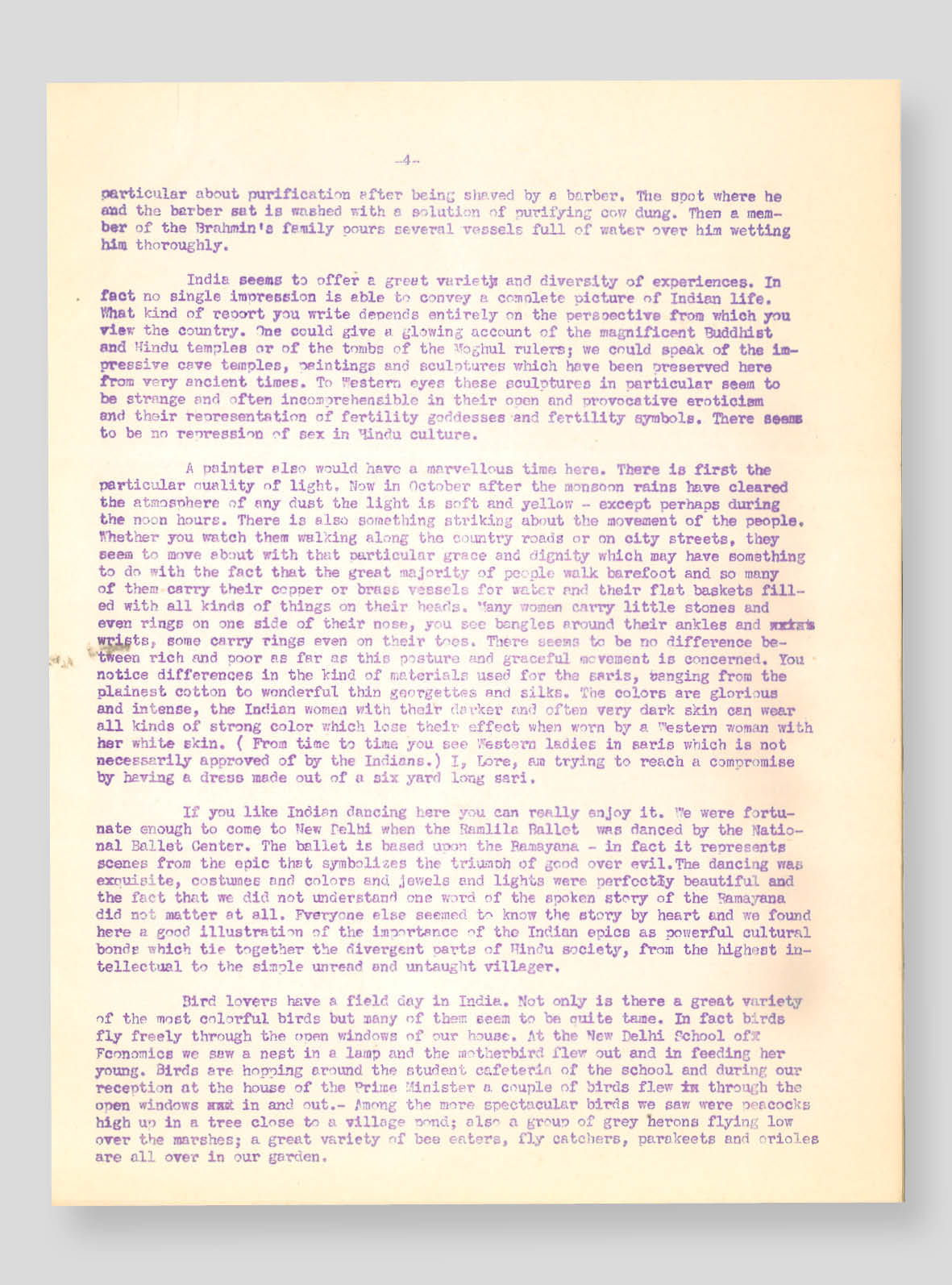
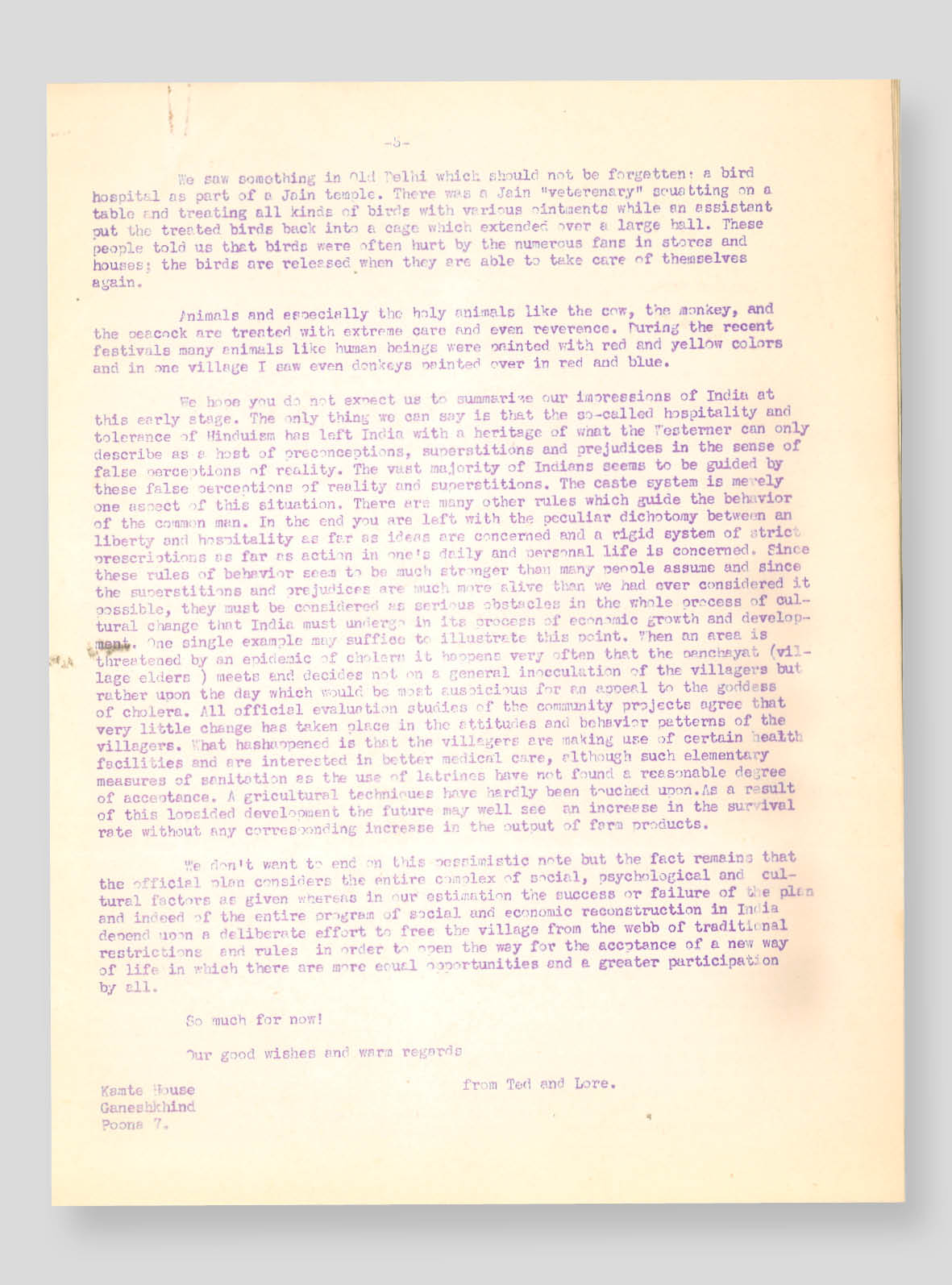
Reports from India

Reports from India

Udaipur ca. 1958

with fellow Fulbright Scholars ca. 1957

The Kapps meet Nehru, prime minister ca. 1958

on their house boat in Kashmir


The Kapps on excursion in Kashmir ca. 1958





Lore on excursions in India ca. 1961

Lore on excursions in India ca. 1961
